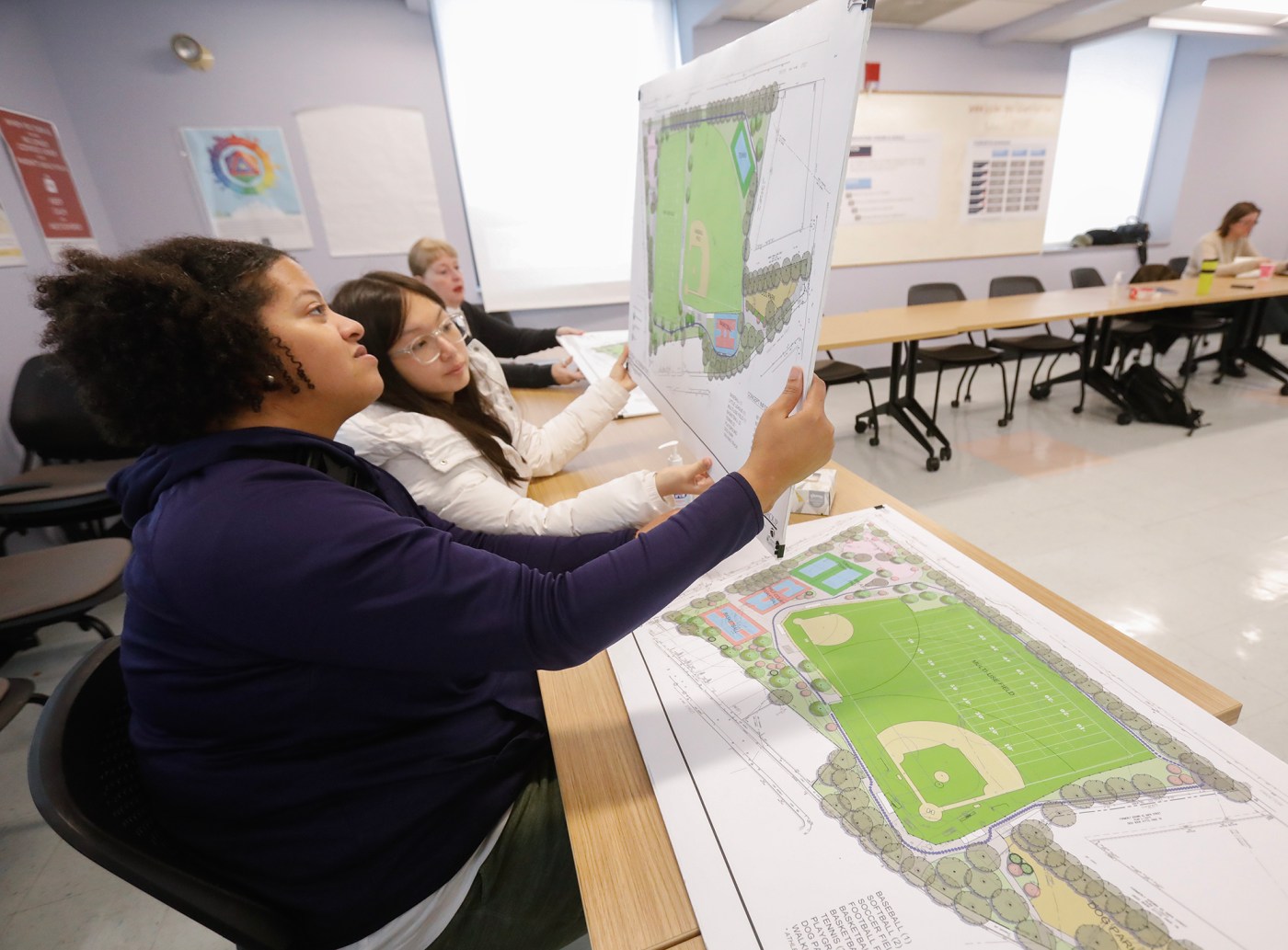
Roxbury residents weigh ideas for playground near Mass and Cass
A month after encampments cleared out of Mass and Cass, officials overseeing the redesign of Clifford Playground remain adamant that the future of the dilapidated park needs to be one that is welcoming to the entire community.
Close proximity to the intersection of Massachusetts Avenue and Melnea Cass Boulevard, a longtime homeless encampment that the city had struggled to control, often resulted in activity spilling over into the 8-acre recreational space, with needles, trash and human feces littering the park.
City officials ordered all tents to be taken down in November, and designers leading the Clifford project said a major goal is to improve the park’s “openness and visibility.” Security cameras and improved lighting would be among the measures taken to achieve that priority, they said.
“We want a park where there’s a lot of activity of the good kind with people coming and playing sports, using it at night,” said Ricardo Austrich, lead project manager for consultant BSC Group. “That’s something that’s going to contribute to the sense of safety and vibrancy of the park and the surrounding community.”
Designers and officials from the city Parks and Recreation Department on Saturday presented a trio of conceptual designs for the renovated Clifford Playground.
Each one of them looks to create fields for multiple sports to be played simultaneously, maintain existing trees and maximize children’s play areas, said Katie Kemen, assistant project manager for BSC Group.
“We know a lot of people want to use this park,” she said. “There’s a lot of interest. We want to make sure it accommodates desired pieces.”
About $7.2 million in the city’s $4.2 billion capital plan is being allocated towards the redesign, but residents have said that won’t be nearly enough for the park to overcome being hamstrung by Mass and Cass.
The planned renovation received an additional $1 million via a federal grant last month to support the efforts that also look to introduce “cooling elements” such as shade and access to water and increase stormwater capacity through green infrastructure strategies, according to officials.
Steph Lewis, president and CEO of The Base, urged designers to consider the permitting implications that may stem from the different concepts. Lewis’s organization is an urban academy, headquartered at Clifford, that engages with roughly 1,500 youth per year in athletics.
“It really becomes a permitting fight amongst communities and organizations” he said about a concept that he felt would prevent two sports from being played at once. “Every time there’s a new field in a community, all of the programs that never used it before try to go after it.”
Officials will be crafting feedback from Saturday’s meeting and a virtual one scheduled for Wednesday, along with thoughts from students at a nearby school, into a final design concept that will be presented in January, said Lauren Bryant, project manager for the city.
Construction is slated to begin either next summer or fall, with the renovation anticipated to be done sometime in 2025.
Whatever concept ultimately is selected, opportunities for children must be prioritized, said Domingos DaRosa, who holds practice at the park for the Boston Bengals Pop Warner football program.
Challenges forced DaRosa to shut down the program this fall.
“I love adults, but I could care less about the drinking, the music,” he said. “For the adults, there’s other parks that you can utilize.”
Concerned residents Steph Lewis, left, and Linda DiPina, right, look over various design options for Clifford Playground. (Paul Connors/Boston Herald)


